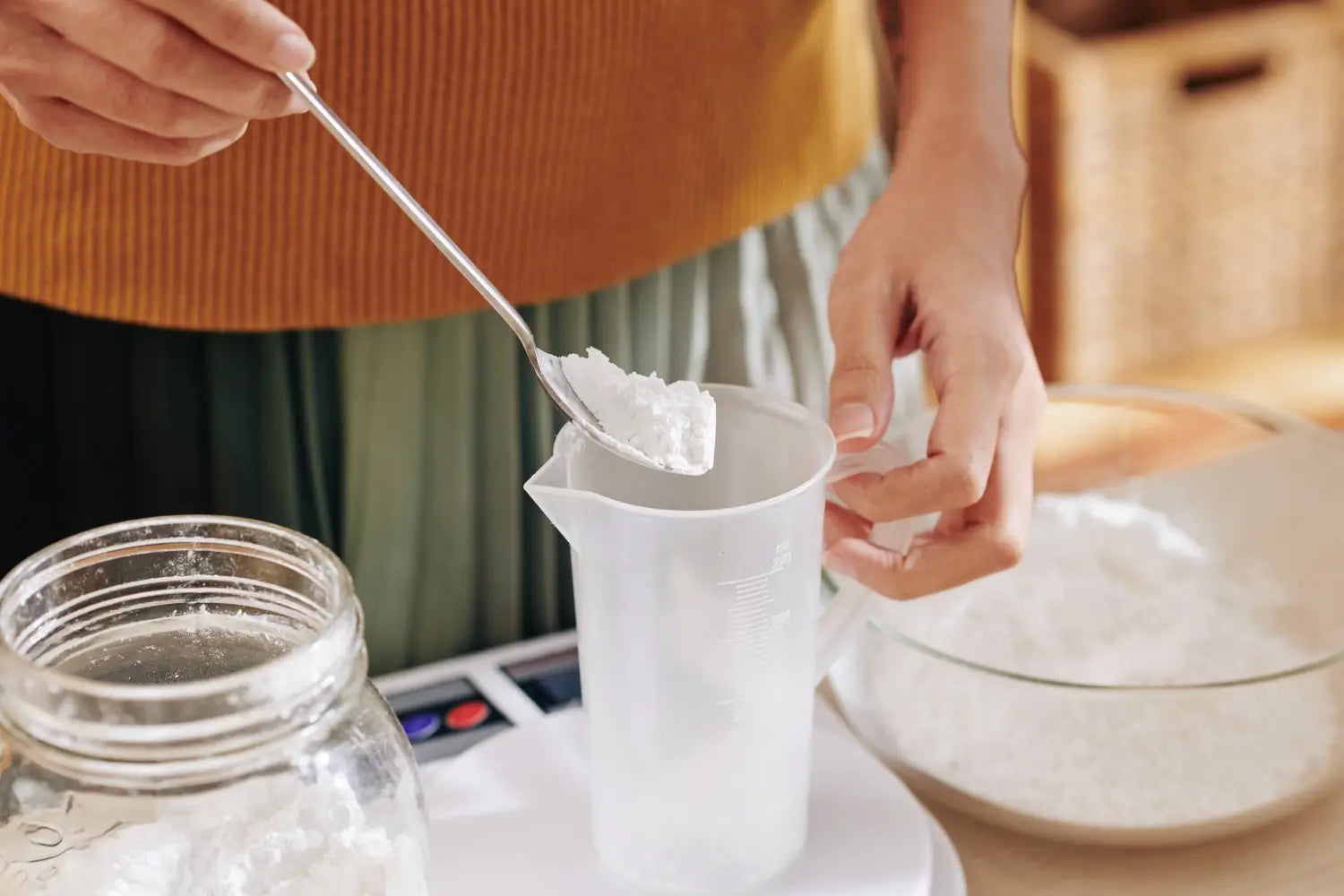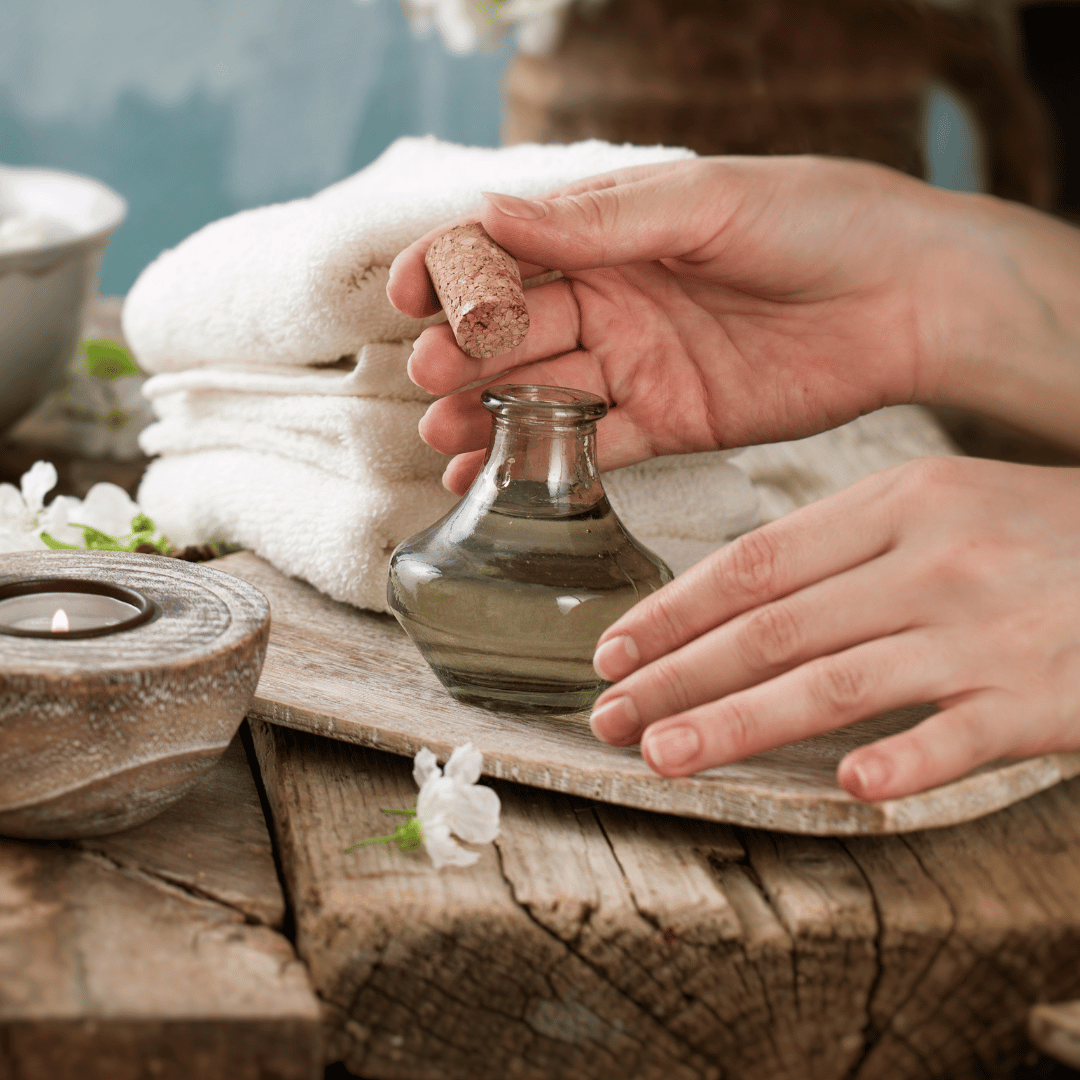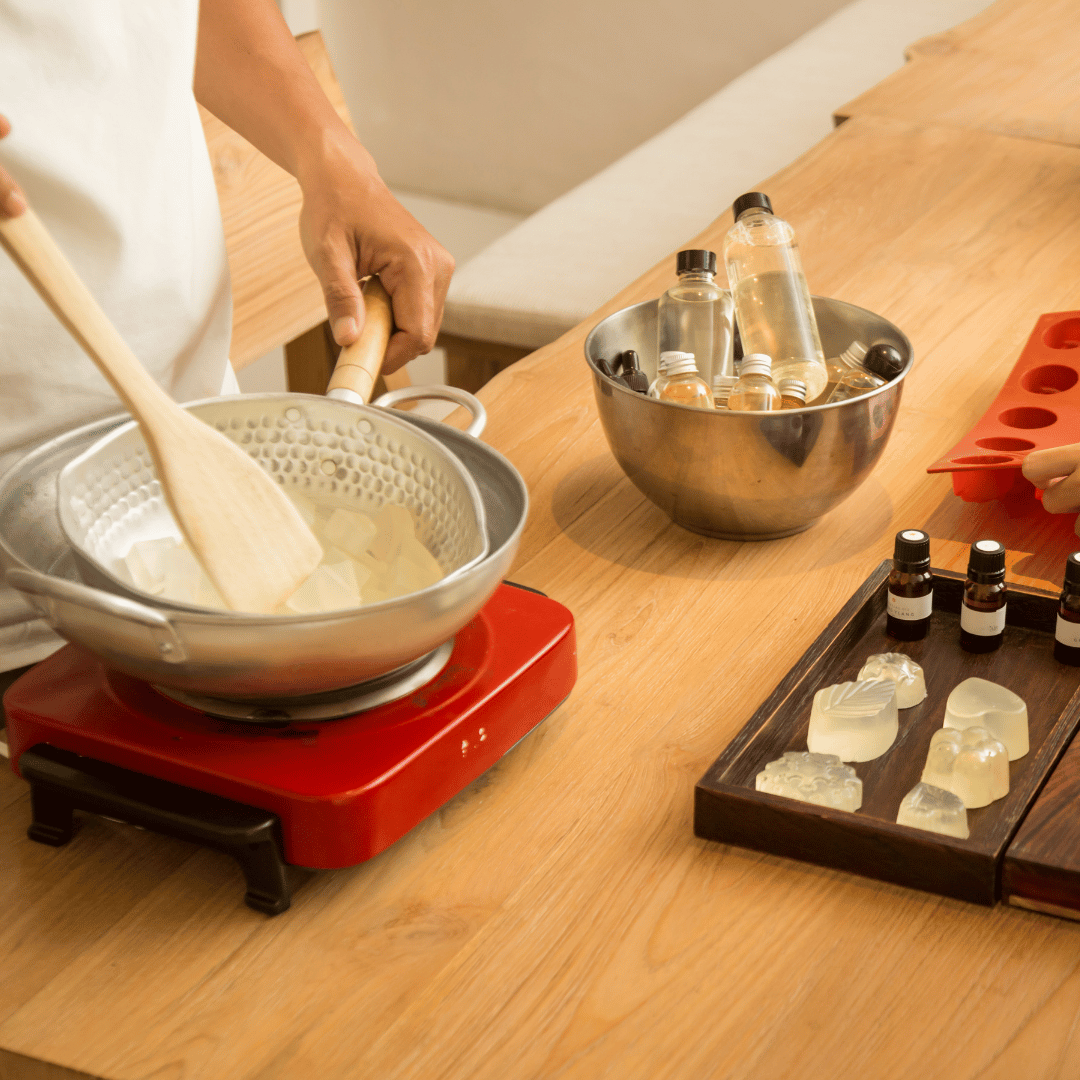Working with lye can be intimidating, especially if you don’t know what it is or how to work with it. What, exactly, is lye? And, is it possible to make soap without it?
Even most people who know what lye is, don’t really understand it fully and have a lot more questions about it. They are also concerned about the safety of using it to make soap.
What is Lye?
Lye is a very-alkaline product that is used to make soap, but it is also used in the food and cleaning industries. There are several types of lye, the most known and most commonly used being NaOH, sodium hydroxide, and KOH, potassium hydroxide. All are metal hydroxides and are very basic (alkaline), meaning they have a very high pH. That makes them very caustic, meaning they can give you a chemical burn if you touch them with unprotected skin.
How is lye formed?
Traditionally, lye was made from wood ashes! By allowing the wood ashes to seep in water, a lye-type (or at least a caustic basic) solution was formed. This lye solution is also known as potash, or “pot ash” (from soaking ashes in a pot). In fact, the name potassium comes from “pot ash” since that’s where it was first isolated. Potash really has more potassium carbonate than KOH, though, which may explain why you can make a solid soap with it despite the fact that KOH is normally used to make liquid soaps.
Modern Lye
Lye, at least the sodium hydroxide (NaOH) type, the type normally used for making bar soap, is now made by breaking down a salt water solution (NaCl and H2O) into NaOH, H2, and Cl2 with a membrane cell chloralkali process.
Making soap nowadays is much easier and much more precise. You can easily buy lye in beads or flakes. Because their purity is known, you no longer have to guess how strong your lye is and how much you will need to make soap. That allows you to make a very accurate recipe that can be repeatedly made in exactly the same way each time. You can also tailor that recipe to use more or less lye depending on how cleansing or how conditioning you want your soap to be.
Can You Make Soap Without Lye?
The answer to this question really depends on your definition of soap.
What most of us know as real, pure, natural soap, though, can NOT be made without lye! Some people will argue that they’ve seen soaps without lye in the ingredients, but all of the cases that we have seen are due to one of two scenarios.
Detergent bars (Syndet Bars) of “Soap”
There are many types of solid cleansing products that are sold in bars, like soap, and that are not made with lye. These bars of “soap” are commonly referred to as Syndet bars, which comes from “synthetic detergent” bars. These detergent-based bars are made from a variety of surfactants and not from the chemical process of reacting lye with fat. There are some more natural surfactants, so that doesn’t necessarily make them bad, but it’s important to make the distinction.



Comment
I want to learn shop making